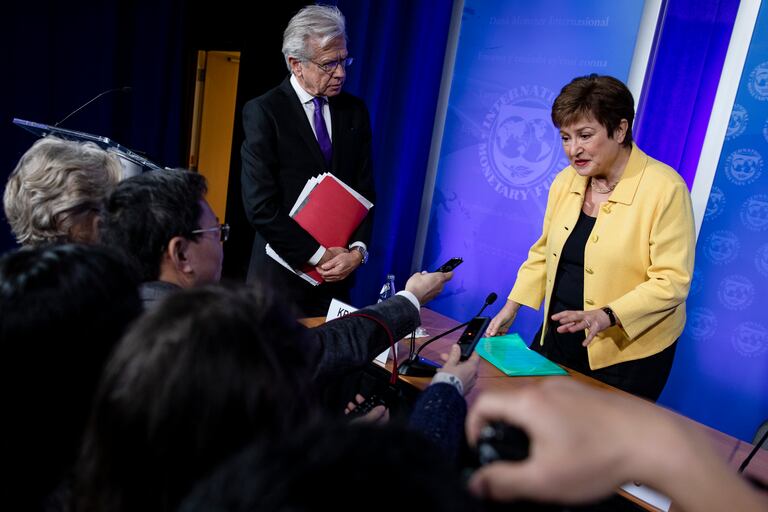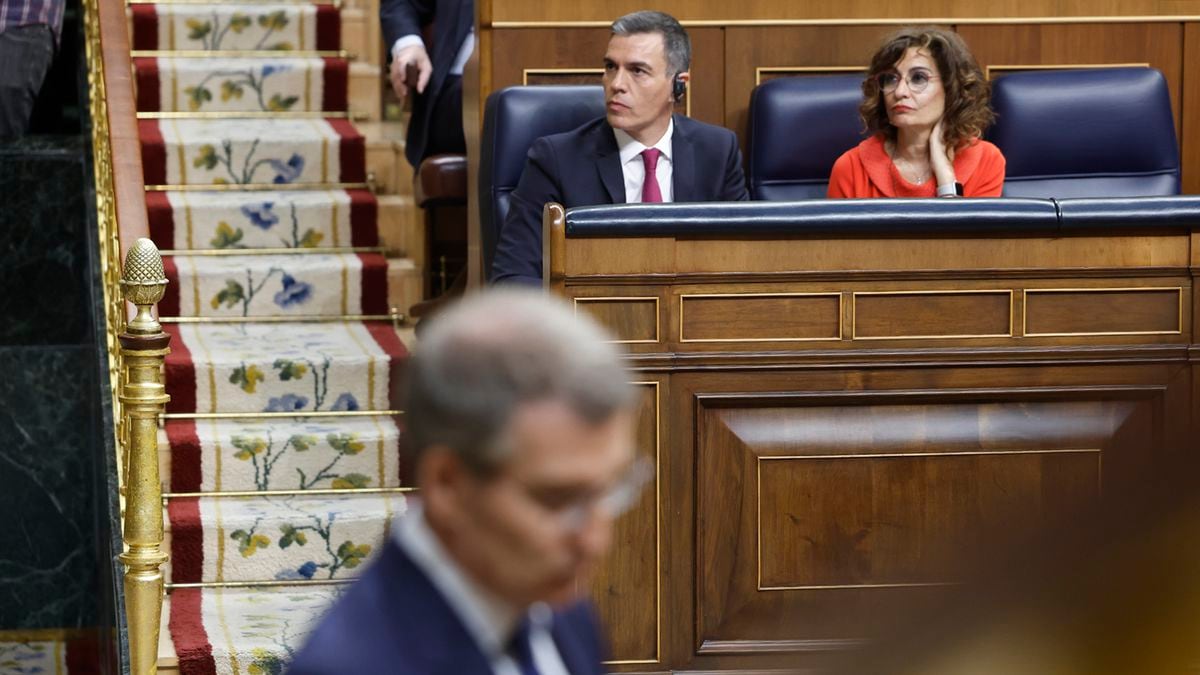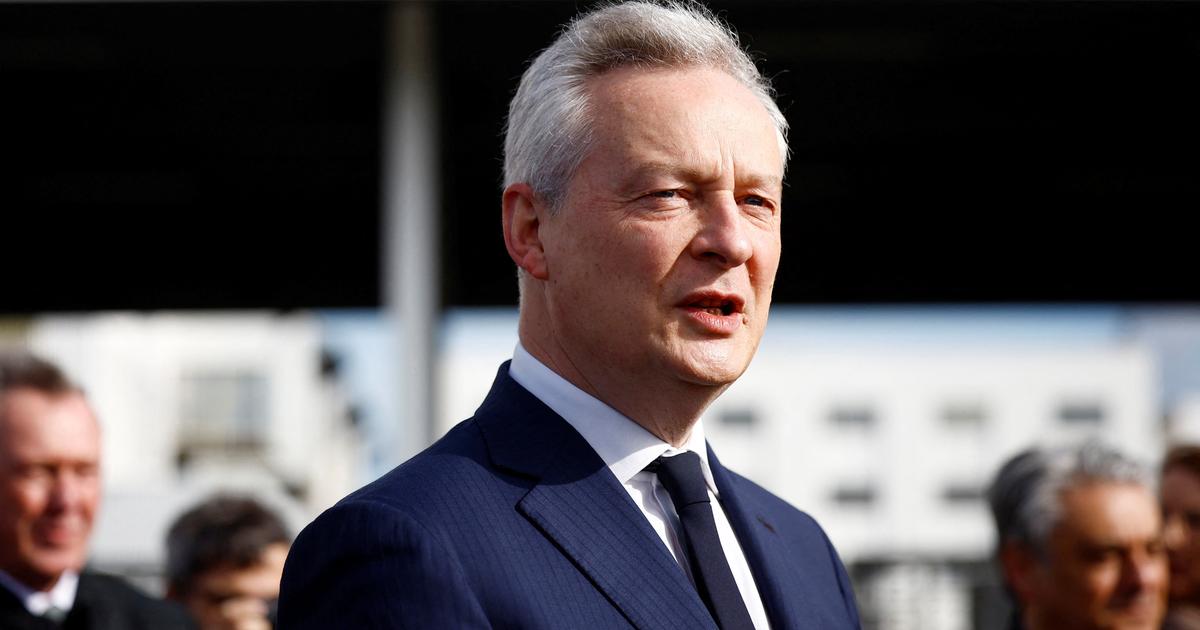IMF chief Kristalina Georgieva in Washington this past March Samuel Corum / GETTY
The coronavirus crisis is turning many speeches upside down.
Among them, that of an International Monetary Fund (IMF) that is increasingly moving away from the more iron orthodoxy for which it distinguished itself in the hardest years of the so-called Washington consensus: the multilateral body began the crisis by exhorting countries to "Spend as much as they could" and, four months later, he asks them to study the introduction of taxes for the richest.
"Governments must take measures to improve tax compliance, and evaluate the application of higher taxes for the wealthiest groups and the most profitable companies," the director of the IMF's Department of Public Finance, Vitor Gaspar, claimed on Wednesday.
"The resulting income would help pay for critical services, such as health and social protection networks, in a crisis that has disproportionately affected the poorest segments of society."
"In a context of pandemic," stressed the former Minister of Finance of Portugal in the press conference after the presentation of the organism's biannual report on global taxation, "it is important that those who are best contribute to compensating the most vulnerable.
And that is something that applies both individually in our societies and for the international community in support of poor countries.
A major reform of the tax system, Gaspar has admitted, is not an easy task in the midst of an unprecedented contemporary health crisis: “It will take time, but we believe that it is important now to offer guidance on what is going to happen in the middle and long-term, now announcing the measures ”.
In the short term, however, the Fund's great concern is that countries do not drop fiscal support measures “too soon”.
The deficit, the IMF manager completed, “is not the greatest risk now;
fiscal support must be maintained, at least, in 2021, with health and education as a priority ”.
"What worries us the most", agreed hours later the managing director of the Fund, Kristalina Georgieva, "is that the support is withdrawn prematurely: it could cause a wave of bankruptcies and a large increase in unemployment.
We are once again telling governments that they should not cut those lifesavers prematurely ”.
In the future, also along the same lines drawn by Gaspar, Georgieva has called on governments to "adapt the tax system to adapt it to the world of the 21st century and make it more equitable."
The risk of a lost generation in poor countries
The term lost decade sounds all too familiar in many Latin American countries, but practically nothing in the rest of emerging countries.
At least, until the coronavirus arrived and threatened to shred decades of uninterrupted gains in the main social and economic variables of a group of nations in which the bulk of world economic growth has been concentrated for years.
The head of the Fund went a step further this Wednesday by warning of the "risk of a lost generation" in low-income countries, where 1.5 billion people live - a fifth of the world's population - but whose GDP is barely it represents 4% of the total.
The case of Africa is paradigmatic of this change in trend in the bloc of developing nations.
The continent, Georgieva has said, was "on the right track" before the pandemic.
"Now it is contracting strongly and, in 2021, instead of growing faster than the rest of the world, it will grow slower," he added.
India too - which has gone from being “one of the most vibrant economies before the crisis” to now plunged into a double-digit GDP collapse— “has to pay all its attention to protecting the most vulnerable;
to give, in short, more opportunities to move forward until we have a solution to the health crisis ”, said Georgieva.
A solution for debt in a difficult economic context
Debt levels have grown strongly around the world, both in rich countries and in low- and middle-income countries, but the facilities for obtaining financing at an affordable price have been anything but symmetrical.
“Like advanced economies, many emerging economies have been able to inject stimulus with low-cost debt.
That obviously helps.
But there are cases in which the solution is more difficult due to the high levels of debt that do not allow them to access the market or that, if they do, it is at a prohibitive cost ”, described Georgieva.
"In those cases, if their debt is not sustainable, they have to take action quickly and decisively."
In this area, the head of the IMF has set as a model two Latin American countries rescued by the organization itself and that have just renegotiated with their private creditors to gain some oxygen: Argentina and Ecuador.
"For the Fund, improving the debt architecture is a very important issue for the coming months and years, and we need to ensure the participation of the private sector in those cases in which the debt is not sustainable."
In recent months, Georgieva acknowledged, "the picture [of the global economy] has gotten a little less bad," but the body he leads is still projecting "the worst recession since the Great Depression."
“More than ever, we must work together: a crisis like no other requires a recovery like no other.
The darker the night ”, the managing director of the Fund has settled, paraphrasing the Russian poet Apollon Máikov,“ the more the stars shine ”.













/cloudfront-eu-central-1.images.arcpublishing.com/prisa/H7U7FJNUZBG6BPL5PZCMGC6EUY.jpg)